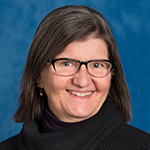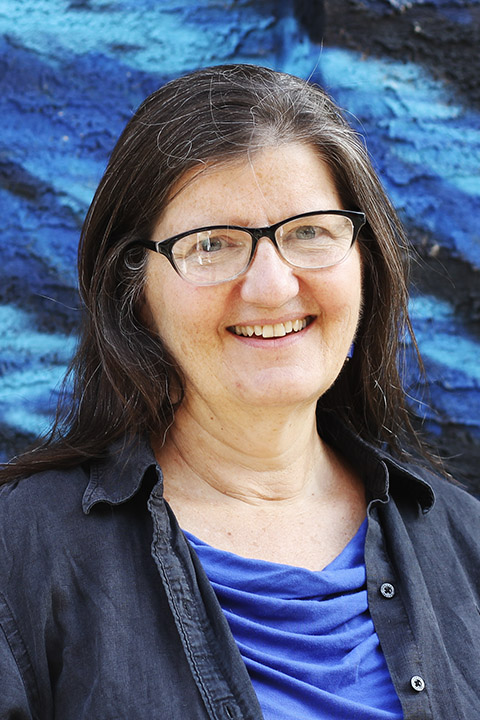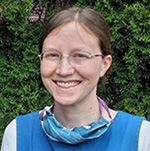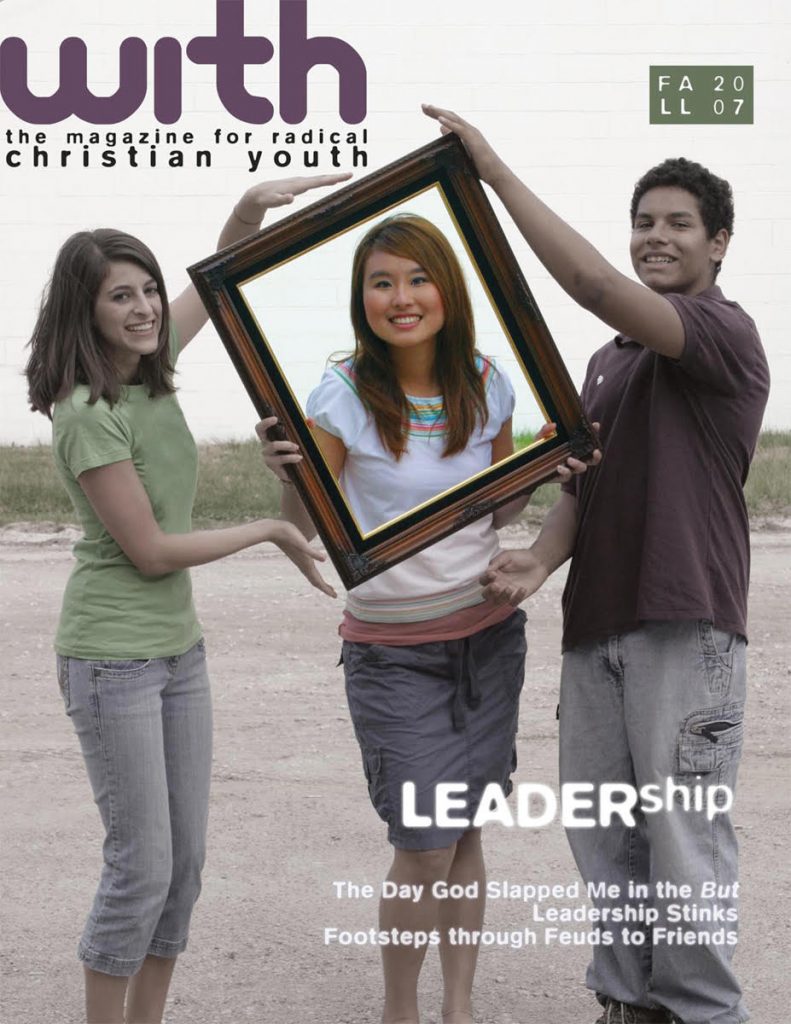This spring our congregation gave a copy of Drawing Near to each of our 17 college graduates. Others in the congregation have already used this beautiful book for their Lenten devotional practice. Drawing Near: A Devotional Journey with Art, Poetry, and Reflection,—edited by John D. Roth and Mosaic Conference staff person Eileen Kinch—is one of several books released by Herald Press to commemorate 500 years of Anabaptism.
The title Drawing Near holds a thoughtful double meaning. I sense it refers to the literal inclusion of drawings throughout the book and helps readers draw closer to scripture, God, and themselves. Each of the 40 entries includes a linocut-style illustration originally commissioned for the Anabaptist Community Bible, a poem by an Anabaptist poet, a set of reflection questions, and blank space for journaling—inviting deep engagement.
Those who notice the physical qualities of a book will appreciate this one. The paper is thicker and more opaque than that of the Anabaptist Community Bible, and the gold on the cover matches the satin ribbon bookmark. Each entry features a unique small gray dinkus that separates the text from the space where the reader is invited to write.
One of the most powerful features of the book is the set of reflection questions accompanying each entry. A poet in our congregation whose work appears in the collection remarked, “I’m not sure who wrote the reflection questions, but you can tell they were written by a poet.” These prompts invite contemplation and close attention, drawing the reader into deeper dialogue with the visual art and poetry.
For example, the reflection questions for the poem “Shiphrah and Puah (Selah)” invite us to read the poem aloud to hear the alliteration and rhyme, to contemplate the art as an inspiration for prayer for contemporary midwives of all kinds, bringing new life into the world, and to “say their names,” evoking a “modern form of resilience and resistance.”
In the questions for reflection on Julia Baker’s gorgeous poem “Lydia” the questions help us understand how the poem works on us. They invite us to consider the role of color in poetry and in our prayer. We’re invited to consider our own lives as we contemplate in the final stanza “…her heart opens / even more/ to his Call, / till the whole cloth / is baptized into a lavish Yes.” And we’re invited to write a poem or prayer about colors.
Poems like “The Tale of Abigail” help us focus on biblical characters and stories that may be less familiar to us.
I asked one of the poets in the collection about her process for this book. Knowing she is a prolific and spiritually grounded writer, I assumed she might have drawn from her existing work. She replied, “Oh no. I spent a lot of time focused on this scripture passage and artwork. I had conversations with another poet about it. And I’m still spending time with it. I’ve written a second poem based on my text. And I’m making my way through the book slowly, savoring it, writing poems in response to other scriptures and artwork. I still haven’t read the whole book.” She added that it was an honor to be invited to be in the company of these other Anabaptist artists and poets.
Spending time with Drawing Near and a pen may draw out unexpected gifts.

Gwen Groff
Gwen is credentialed by Mosaic Mennonite Conference. She was pastor of Bethany Mennonite (Bridgewater Corners, VT) for 24 years. She is currently serving as an interim pastor at Community Mennonite in Harrisonburg, Virginia, an Allegheny Mennonite Conference congregation. She is a spiritual director and a parent of two adult children.
Mosaic values two-way communication and encourages our constituents to respond with feedback, questions, or encouragement. To share your thoughts or send a message to the author(s), contact us at communication@mosaicmennonites.org.































 As part of our ongoing practice of going to the “margins,” a contingent of Franconia Conference staff traveled to Vermont last week for a 48 hour working retreat. Of course, going to the margins can be a relative statement depending on where one places the center. Perhaps, going to the margins can actually help re-center us in the saving work of God in this world. By locating ourselves physically in other people’s spaces we are re-placed and invited to see how the Spirit is present and active in communities and people beyond our own.
As part of our ongoing practice of going to the “margins,” a contingent of Franconia Conference staff traveled to Vermont last week for a 48 hour working retreat. Of course, going to the margins can be a relative statement depending on where one places the center. Perhaps, going to the margins can actually help re-center us in the saving work of God in this world. By locating ourselves physically in other people’s spaces we are re-placed and invited to see how the Spirit is present and active in communities and people beyond our own.

 Of course Vermont has other “gifts” to offer such as cheese, maple syrup and beautiful scenery. Our retreat included a visit to the Sugarbush Cheese and Maple Farm for a delightful cheese and maple syrup tasting and we enjoyed an invigorating walk down the Quechee Gorge.
Of course Vermont has other “gifts” to offer such as cheese, maple syrup and beautiful scenery. Our retreat included a visit to the Sugarbush Cheese and Maple Farm for a delightful cheese and maple syrup tasting and we enjoyed an invigorating walk down the Quechee Gorge.